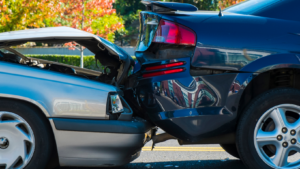 Imagine you’re driving down the road, minding your business, when suddenly another car swerves into your lane, causing a collision. The impact leaves you shaken, with throbbing back and neck pain. The driver of the other vehicle admits fault but then makes an unexpected offer – instead of exchanging insurance information, they want to pay your medical bills out of pocket.
Imagine you’re driving down the road, minding your business, when suddenly another car swerves into your lane, causing a collision. The impact leaves you shaken, with throbbing back and neck pain. The driver of the other vehicle admits fault but then makes an unexpected offer – instead of exchanging insurance information, they want to pay your medical bills out of pocket.
At first glance, this might seem like an attractive option, all things considered — especially if you don’t want the hassle of going through insurance companies or dealing with the claims process. But before you make any decisions, it’s important to consider the potential long-term risks and consequences of accepting this type of offer, which could negatively impact your financial security, health, and legal rights.
You may feel tempted to accept an offer from an at-fault driver to pay for the damages out of pocket, especially if you’re dealing with what seems to be a minor accident or no apparent serious injuries. However, before agreeing to a cash payment on the spot, you should pause and assess the situation carefully. While it might seem like an easy and quick solution, accepting cash without fully understanding the scope of the damage or your injuries right after it happened can make you vulnerable to significant financial and personal risks.
A critical risk of accepting a cash settlement immediately after an accident is the potential for your injuries to worsen or develop over time. Often, car accident injuries, such as whiplash, back pain, or soft tissue injuries, may not show immediate symptoms. It can take hours or even days for the full impact of your injuries to become apparent, and when they do, they might need extensive medical care and rehabilitation.
If you accept a cash offer from the at-fault driver, you may be left without the financial resources to cover future medical bills if your injuries worsen. Once you settle for a cash payment, you may also lose the right to pursue further compensation for medical costs or lost wages, which could be financially devastating.
It’s also important to recognize that accidents can cause psychological trauma that you might not experience or identify immediately following the incident. Post-traumatic stress disorder (PTSD), anxiety, and depression are common after car accidents, and the related emotions can negatively affect your daily life and your ability to work. If you accept cash for damages, you might be overlooking the long-term mental health consequences of the accident, leaving you without the funds necessary for mental health treatment.

In many cases, what appears to be a minor scratch or dent can actually be a sign of more serious structural damage that’s not visible to the naked eye. If you accept a cash offer and later discover that your car’s issues are more complicated than you initially thought, you might end up paying out of pocket for repairs that the at-fault driver’s insurance would have covered.
While it may seem like a generous offer coming from someone who acknowledges their role in an accident, there are often hidden motives behind this decision that you should know. Recognizing these reasons can empower you to make a more informed decision.
The most common reason an at-fault driver might offer cash is to avoid involving their insurance company. These types of claims can lead to rate increases, and most drivers want to keep their premiums low. By paying out of pocket, the driver may think they can avoid the claims process entirely. This is particularly true if the accident is minor and the driver thinks the costs can be handled privately.
In some cases, the at-fault driver may want to avoid legal issues that could come out of an insurance claim. If the driver is uninsured or underinsured, they may be trying to get out of being sued or facing legal action. A cash offer might seem like a way to resolve the situation without involving attorneys, but it’s important to consider whether this offer truly covers all the potential costs associated with the accident.
While a quick cash settlement might seem tempting, it’s usually wiser to file a car insurance claim after an accident. Here’s why:
When you file a claim with your insurance company, you’re ensuring that you have the financial protection necessary to cover the full extent of any costs associated with the accident. Insurance companies are experienced in evaluating accident claims and determining fair compensation for all damages. By accepting cash, you risk being underpaid for your damages, especially if unforeseen issues arise later.
When you file an insurance claim, you’re establishing a formal record of the accident and the damages incurred. This documentation can be vital if the at-fault driver disputes the facts later or if additional issues arise that were not initially clear. Without this documentation, it can become much harder to build your case, especially if you need to pursue further legal action against the at-fault driver.
Filing an insurance claim can seem intimidating, but it’s actually a straightforward process. Here’s what to expect:
Cash offers may be reasonable in rare cases where minor accidents occur and both parties trust each other. These situations typically involve low-cost, single-vehicle accidents with minor damage and a reliable, trustworthy, at-fault driver.
However, even in these cases, it’s important to carefully assess the situation for any potential hidden damages, underlying mechanical issues, or injuries that may not be immediately visible.
In accidents involving a trustworthy driver, a cash offer may seem like a good solution. However, it’s still essential to thoroughly document the accident, take photographs, and keep accurate records of the settlement to protect yourself in the future.

Accepting a cash settlement without fully understanding its implications could also jeopardize your legal rights, especially if the situation worsens later. By protecting your right to pursue further legal action if necessary, an experienced car accident attorney can provide critical guidance on your options.
At Regan Zambri Long, we understand the intricacies of car accident settlements and are committed to helping our clients throughout the process. Our experienced team of car accident lawyers works tirelessly to protect your rights and ensure you receive the compensation you deserve. We can help you assess any cash settlement offers, negotiate with insurance companies, and pursue the best possible outcome for your case.
If you’ve been offered a cash settlement after a car accident, contact the experienced car accident attorneys at Regan Zambri Long to protect your rights and ensure you receive the full compensation you deserve. Don’t make a decision without understanding all the potential risks. Let us help you make the best choice for your future.